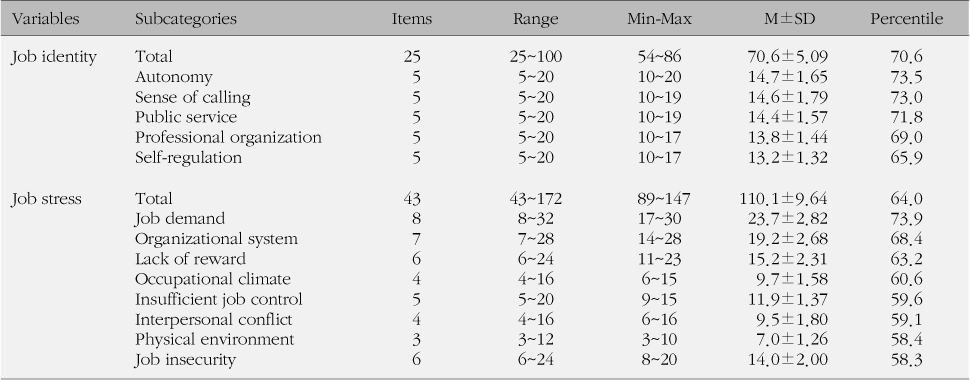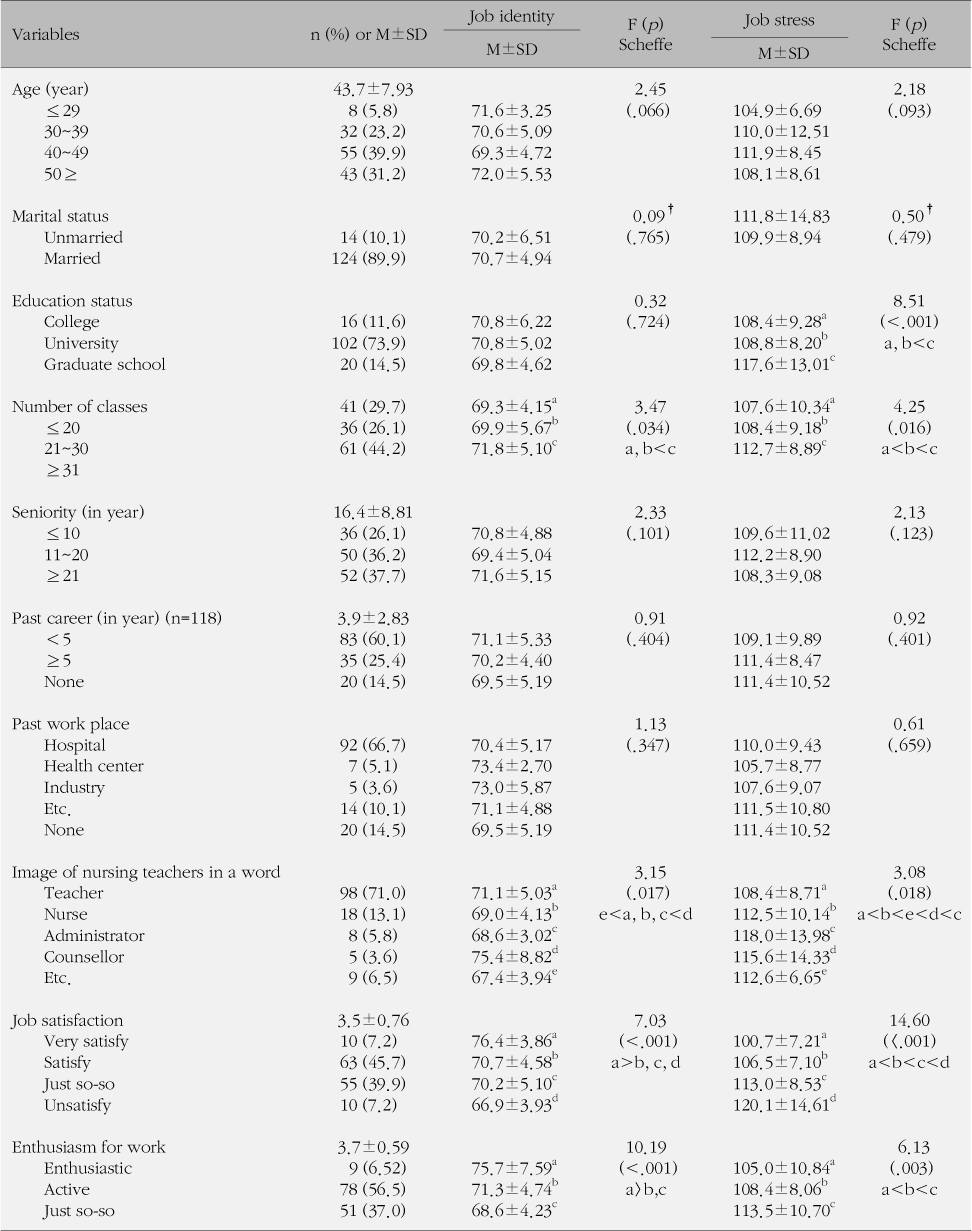References
1. Anderson WA. Bureaucracy and professionalism in the social services: A multi-dimensional approach to the analysis of conflict and congruity. J Soc Serv Res 1983;5(3-4):33–50.
2. Chang SJ, Koh SB, Kang DM, Kim SA, Kang MG, Lee CG, et al. Developing an occupational stress scale for Korean employees. Korean J Occup Environ Med 2005;17(4):297–317.
3. Choi JI. The study of nursing teacher qualification and promotion Masan: Kyungnam University; 2000. Unpublished master's thesis.
4. Choi YL. A study on the accomplishment of jobs, job satisfaction and job stress of school nurses in Chon-Buk Province Gwangju: Chonnam National University; 2001. Unpublished master's thesis.
5. Dragano N, He Y, Moebus S, Jőckel KH, Erbel R, Siegrist J. Two models of job stress and depressive symptoms: Results from a population-based study. Soc Psychiatry Psychiatr Epidemiol 2008;43(1):72–78.
6. Guilday P. School nursing practice today: Implications for the future. J Sch Nurs 2000;16(5):25–31.
7. Hall RH. Professionalization and bureaucratization. Am Sociol Rev 1968;33:92–104.
8. Kim HB, Kim JH, Lim JY. Effects of organizational support on hotel employees' occupational identity: Focusing on the analysis of hotel grade. Korean J Hosp Adm 2010;19(1):35–54.
9. Kim HK. A study on the analysis of training and appointment system of health teachers in Korea Iksan: Wonkwang University; 2005. Unpublished doctoral dissertation.
10. Kim HR. Analysis of teachers' job stress and it's related variables Busan: Pukyong National University; 2006. Unpublished masters' thesis.
11. Kim JH. A study of the relationship between career identity and the work satisfaction among elementary school health teachers Busan: Pusan National University; 2009. Unpublished mater's thesis.
12. Kim MH. A study of the relation between self-concept of profession and duty satisfaction of school health nurse Seoul: Kyunghee University; 2000. Unpublished master's thesis.
13. Ko JJ. A study on the job stressor during teachers' duties affecting the stress at work and the intermediate effects of self-esteem. J Fam Relat 2009;13(4):247–268.
14. Lee KO. A study on the job satisfaction and job stress of the school nurse Daejeon: Chungnam University; 1998. Unpublished master's thesis.
15. Lee NY. The effect of school health teacher's empathy degree on children / professional counseling teacher's license and teacher efficacy / job satisfaction Chungwon: Korea National University of Education; 2007. Unpublished master's thesis.
16. Lee SH, Choi YH. A study on job stress and job satisfaction of 119 relief squads. J Korean Acad Community Health Nurs 2006;17(4):521–529.
17. Lee KH, Jung HY. Relations of school organizational climate and teachers' job stresses. J Fish Mar Sci Educ 2009;21(1):121–133.
18. Moon YJ, Hwang MK. The impact of mentoring experience and mentoring function on professional identity of social welfare officials. J Hum Resour Manag Res 2007;14:93–111.
20. National Legislation Information Center. Enforcement ordinance of the school health rules Seoul: Korea Ministry of Government Legislation; 2010.
21. Park JJ. A research on the actual, condition for school health affairs of school nurse in Kunggi province Seoul: Ewha Womans University; 2003. Unpublished masters' thesis.
22. Park JW. A study on the professional identity of social worker Seoul: Seoul National University; 1994. Unpublished Doctoral Dissertation.
23. Pavalko RM. Sociology of occupations & professional itasca Illinois: F. E. Peacock publishers; 1971.
24. Rhie IS, Kim SI. The effects of a stress management program on job stress in a hotel culinary staff. J Korean Acad Community Health Nurs 2008;19(4):611–621.
25. Ryu HJ, Park JS. A study on the performance level, the awareness of the importance, and improvement of school health promotion programs. J Korean Acad Community Health Nurs 2007;19(2):247–257.
26. Seo MO. A study on a school health teacher's job stress and job satisfaction Chungju: Chungju National University; 2006. Unpublished master's thesis.
27. Won KH. The comparison of the health condition and the satisfaction level with school life of the male and female elementary school pupils utilizing the clinics at school Seoul: Kyunghee University; 2002. Unpublished master's thesis.
28. Yang SO, Kwon MS, Jeong GH, Lee SH. A study on the awareness of importance, performance level, and perceived competence level of school health promotion programs. J Korean Acad Community Health Nurs 2009;20(1):96–104.
29. Yi CR, Kwon NW. Development of a teacher-efficacy scale for health education teachers. J Korean Acad Community Health Nurs 2008;19(2):247–259.
30. Yu TH. Factors affecting career identity development in a physical education teacher. Korean J Phys Educ 2000;39(3):725–739.



